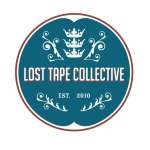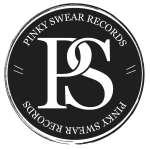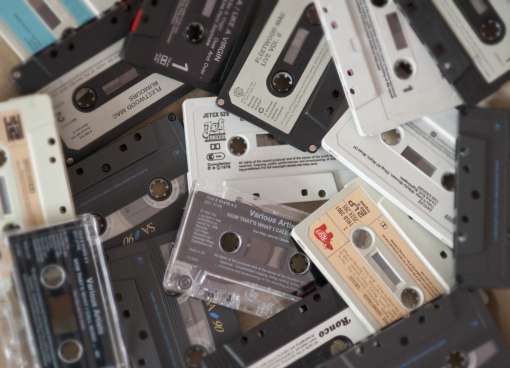In recent years there has been a downturn music consumers purchasing physical releases, with many choosing digital downloads as an alternative. In the year 2012, this is a common, well-known fact. Year in, year out stories appear announcing the decrease in CD sales and online sales increasing.
However despite this favouritism towards digital downloads, there are some consumers who still prefer to purchase. In recent years, one physical format has continued to increase in sales and that is the vinyl format. In 2011 there was a fourteen percent increase in vinyl sales.
Nevertheless for independent labels, the production cost to produce vinyl releases can be costly, and in the current hard economic times, it can more than often be challenging for small labels to produce such releases and to please music fans.
But there are some labels who are finding away around the demanding production cost and satisfying customer needs. They are doing this by producing cassette releases, a format that, for some, has long been forgotten about since it’s decline in the early 1990’s.
In 2012 several labels are regularly producing compact cassette releases, with the likes of Doghouse Records, Lost Tape Collective, Pinky Swear Records and amongst others being part of the cassette revival
Already Heard asked a handful of labels about the cassette revival; does production cost become a major factor? Is there a nostalgic factor behind it? Has the vinyl boom influenced it?
To begin with, why do you think labels, especially independents, have started producing cassette releases again?
David Conway (Doghouse Records): For me it just took me back to a far more innocent time in my life as a music lover. Cassettes were the first format I bought. I remember very vividly buying Stone Temple Pilots, White Zombie, Morbid Angel, Danzig and Alice In Chains tapes at the mall; going home and putting them in my Sony boombox and just reading the j-card foldouts over and over again. That format and the way it plays really pushes you to sit and listen to the entire body of work. It’s sort of the exact opposite experience to the iTunes/mp3 way of digesting music. This was also pre-file sharing so you cherished a record when you saved up and got it. You judged it as a full body of work and not just a file you can listen to for 30 seconds and make a decision about if it stays on your hard drive or not.
Justin Collier (Lost Tape Collective): I think everyday that digital music comes more of the norm, there is a certain group of people who are romantics and want something physical to hold in their hand… even if they are listening to the MP3’s, they still want the physical copy for their collection…. so whether its vinyl, cassettes, flexies, etc – people like to collect stuff… at least some people.
I sound like a grumpy old man, but to me I really love cassettes because of how clunky they are and because trying to skip tracks almost gives you a nervous breakdown. It allowed the artist to say “here is my album as I intended it to be listened to, good luck trying to fuck with that.” I started doing them for Doghouse and Working Group bands because it’s just something different on the physical side. We’ve stopped making cds for most bands and I always like some physical format for our records, even for the smallest bands. This format is cost effective and always causes a double-take at the merch stand.
Steven Hill (Struggletown Records): Personally I think the cassette is relevant to our label because a lot of the bands we love released their music on cassette back in the late 80’s an early 90’s. That physical aspect is difficult to replicate with digital downloads.
Lee Burgess (Pinky Swear Records): To begin with, we feel it’s always nice for bands to have a physical copy of their music to sell, whether it be at shows or online, for fans to pick up and appreciate owning a physical copy over a file sat somewhere on their hard drive. Sometimes, for people to actually buy a physical copy, and it’s unfortunate to put it this way, it has to have a unique, quirky, collectable feel and/or look to it, along with a sensible price tag. This is where cassette tapes fall in nicely. You can have a lot of fun having them make, coming up with colour ideas, artwork ideas, anything and do it with a very affordable budget.
Richard Heaven (Pornography for Cowards): I think it’s down to two things – one is cost, and the other is how we perceive music nowadays. I think the ballpark figure for 100 cassettes duplicated and printed on is around £110 which is considerably cheaper then vinyl and well below the often quoted minimum for CD printing/duplication.
Also I feel that the industry as a whole has come to terms with the idea that – as long as you include a download code – you can sell music in any format. Vinyl, cassette, watch, stickers, frisbee… the possibilities are endless. So if the music suits the format, why not work with cassettes?
Saying that, It does seem that some of the larger labels are jumping on the bandwagon a little. Does Bridge Nine really need to release their music on cassette as well as vinyl and CD? Of course not – if you can afford to press records on multiple colours as well as produce 1000 CDs claiming a DIY format like cassettes could be considered simple posturing.
Why do you think fans/consumers are buying cassette tapes, especially when digital downloads is more common in this day and age?
David Conway (Doghouse Records): I think people are buying tapes for a few reasons. For me, I’m buying them because I do like a physical form of a record to have on my shelf. Something to support the band and to also just have visually in my home to enjoy. My usual way with music is stealing the digital and buying the vinyl or cassette version of it. I probably shouldn’t say that being in the music business, but I support bands the way I would love to see all fans support bands; go see them play, buy a shirt, buy these fun boutique items and realistically it’s hard to convince me to buy an iTunes album when those other things are better fan-experiences for me. It’s all about respecting the fan and giving them a way to support your band that isn’t insane. Telling them to buy mp3s’ is on the verge of being insane.
Steven Hill (Struggletown Records): I think fans and consumers like to collect things, pieces of a band’s history. Cassettes are nice and cheap to buy, small and easy to store. I think the vast majority of them don’t get played much, compared to vinyl/CD/Digital, but they look cool and limited edition runs of anything are popular these days.
Lee Burgess (Pinky Swear Records): There are people out there, like ourselves, who try our best to buy a band’s music if we dig them. We aren’t going to say that we don’t illegally download music, because we do, and understand the perks of that as well, but for an artist or label to put out a cassette tape, in the region of £2-4 in limited numbers, with cool artwork and a DIY feel to it, along with a free download accompanying it, it isn’t much to put out to purchase a physical copy and support independent bands and labels in continuing their journey for as long as possible.
Richard Heaven (Pornography for Cowards): The same reason that fans are buying CDs and records – we like having something physical. It’s also nice when labels put that little bit of extra effort into their cassette releases like bonus tracks, booklets, exclusive artwork etc to make it really stand apart from the download copies.
For independent labels, is producing cassettes a cheaper alternative to vinyl and cd’s?
David Conway (Doghouse Records): Yes. Cassettes are super cheap. There are no additional costs like vinyl mastering, startup costs, etc etc and you can do pretty much whatever quantity you want at a little over a dollar each. We are typically doing 200-300 cassettes for our releases and that seems to be about where the demand is for our bands. I like it being limited.
Justin Collier (Lost Tape Collective): The minimum amount you have to order for cassette is far lower than vinyl so it becomes a lot cheaper. If you want to do 50 copies, its easy to do for cassette where as its impossible to do for vinyl.
Steven Hill (Struggletown Records): Purchasing tapes is much cheaper than pressing vinyl, you can also take control over the length of the run more easily – you need to get at least 300 records pressed before it’s worthwhile price wise, tapes are so cheap that you could do anywhere between 5 and 500 if the demand was there. Most people do lower numbers and vary colours/cover designs, for maximum attraction to fans and collectors.
Lee Burgess (Pinky Swear Records): Massively so, especially for vinyl! We haven’t actually put anything out on CD because I feel they’re rather worthless and not really fun to collect, as they’re usually produced on a high mass scale (dependant on the artist of course) and you literally buy them to rip the tracks for mp3 format anyway. But that’s irrelevant to the question.
I’d say tapes cost about a third of what vinyl costs to get pressed. Plus with vinyl, the majority of the costs are in the setup. So you have to get a few hundred made to kind of try and reduce the cost per unit to make it affordable for fans to buy.
In saying that, if you want to work with an artist, and in the nicest way of meaning it, you don’t think they could shift 300 7” records, cassette tape releases are a fabulous option to have as the cost per unit for 30 or for 100 is pretty similar, so small runs are possible and it’s fun to release.
Richard Heaven (Pornography for Cowards): My gut reaction is to say ‘yes’ to vinyl but that wouldn’t be completely honest. If you can manufacture 300 7"s for £600 then there is very little difference in price per unit but there lies the issue – how many bedroom labels can afford to drop £600 on pressing a record? Can the band even shift 300 units? Probably not on the scale we’re talking. So it may be about the same cost per unit to press vinyl but making 100 tapes and selling 80 of them is much more sensible then pressing 300 record and being left with 220 under your bed. I hope that makes sense.
Now for CDs – that’s a minefield. You could go all ACDSleeve and make something awesome, spending £3.50-4 per unit or you could just photocopy an insert and stick a CDr in a plastic sleeve which will cost just a few pence. There’s too many variables. For the sake of argument, the Dashwood ‘Hurt/Heal’ EP we released cost about the same per unit as the Burn Daylight cassettes which came out the same time. If you want to make something worth having then I reckon the cost is about the same.
Does production cost become a big factor when deciding to produce tapes compared to other formats?
David Conway (Doghouse Records): Yes, this sort of ties into the last question, but deciding to spend $300 on tapes is much easier on the business side than $5,000 to make a run of 12 inch records. We can then assess how the band is growing from there and move into vinyl.
Justin Collier (Lost Tape Collective): I typically release cassettes that we’re already released on another format so I don’t have to pay to record the album, so the production costs are strictly for the cassette itself so the overhead isn’t nearly as high.
For me, the sort of starter package now is digital + cassette and then roll into vinyl when the band is of the right size. We still will do some 7inches and 12inches for established bands, but the costs are high up front. I also think the whole vinyl thingis a bit bloated now. It’s more about collecting the color and the pressing information instead of the experience of listening to the vinyl itself. The cassette, for me, is about listening to it…since it’s kinda a shitty format sonically. I’m obsessed though.
Steven Hill (Struggletown Records): I would say the value of the tape is being able to pass on the saving to the customer, with vinyl costs being relatively high and volumes matching those costs, you need to be pushing people to commit to buy at £5 a unit roughly – and you need to ensure high volumes of purchases in a shorter period of time to break even. Tapes are more relaxed, because you don’t shell out a high amount to start with you can keep a healthy stock and let people pay a low price for them, like £2/£3.
Lee Burgess (Pinky Swear Records):Definitely! Money is tight, especially in independent music. A limited run of cassette tapes is far more cost effective to work with, as it costs less to produce, and it’s an easy option to repress for a similar price if your first run sells out; in comparison to putting far more money into a larger pressing of vinyl and risking the chance it might not sell well.
Do you think there is a nostalgic factor behind the revival of the format?
David Conway (Doghouse Records): Definitely. 10000%
Justin Collier (Lost Tape Collective): Absolutely, it goes back to what I was saying earlier about people being romantics. They just want something to hold in their hand.
Steven Hill (Struggletown Records): I would say nostalgia features highly in the appeal of tapes/cassettes in recent times. I think fans of punk/hardcore etc are always looking back to it’s heyday in the 80’s and trying to emulate that attitude. Another important factor is the DIY element, taking the production into your own hands, again it relates to nostalgia – but it’s nice to be in charge of the production process from start to finish.
Lee Burgess (Pinky Swear Records): Yes, I feel the main nostalgic factor is the collectability in combination with the support for the scene. Combine the two and it keeps fans happy and bands happy. Fans want to hear new music, bands want to produce new music. If a cheap, collectable format can help combine the two then it’s brilliant.
Richard Heaven (Pornography for Cowards): Not really. I remember buying the odd cassette from Woolworths as a young kid (I’m 21) but I’ve got much warmer memories of buying vinyl records from HMV whilst in college. I think it boils down to cassettes – like DIY CDs – allowing small bands to self release for their fans than any real nostalgic reasons. Plus it is a satisfying ‘fuck you’ to the major labels and their soul sucking, mass produced jewel case CD releases when you buy a cassette which has been produced at home and the profit goes straight back to the band/indie label.
Has the increasing popularity of vinyl influenced the revival of the cassette in anyway?
Justin Collier (Lost Tape Collective): It all feeds into peoples need or want to have an actual physical product. Punk always goes against, or at least differently than what is popular; people hear a song in H&M, “shazam it”, download it and dance to it at the club. Punk kids hear it in their friends car, look it up online, order the cassette or LP, get the immediate digital download, fall in the with the songs and then fall in love with the album when it shows up on their door steps a week later.
Steven Hill (Struggletown Records): I would say Vinyl and Cassette go hand in hand to an extent, although there are huge divides in collector opinion also. I think the sound purists would always choose wax since the physical nature of the grooves allows a hi fidelity sound, compared to laser etching on CDs and especially magnetised tape on cassettes, that said I know people who prefer cassettes aesthetically – However I would return to my original point that as nostalgic, DIY based media Vinyl and Cassettes are essentially components of the same aspect of the industry at this point, lower cost, easier access products that collectors and fans can buy for low prices.
Lee Burgess (Pinky Swear Records): There is definitely a positive correlation between the two, yes. I, along with I suspect most people who read this, started collecting vinyl records before cassette tapes. Maybe due to the fact more larger bands release their music through vinyl, CD and digitally, and cassette tapes are seen or smaller artists, I don’t know. But I think it would be cool to see bigger bands putting music out on cassette tape. It’s something I’d love to get involved with if the chance occurred.
But back to the question; with vinyl increasing in popularity, with wacky colourways, limited artworks, cool packages etc, collectability became a big thing in the scene and it’s a new way for bands to make an extra sale and be able to stay on the road and afford to record, and a new way to aid a fans collection.
Is there a big enough interest from fans in cassettes?
David Conway (Doghouse Records): It’s not huge. It’s a very boutique item. We know we can sell 200 and enjoy doing that. It’ll NEVER be a format that takes over in a big way.
Justin Collier (Lost Tape Collective): “big enough” is a subjective term. Is it big enough for me to buy a house from running a primarily cassette based label? No, definitely not. It is big enough for me to keep releasing cassettes because theres a small but steady amount of people picking them up? Yes!
Steven Hill (Struggletown Records): Cassette interest can only be gauged on the relevance of the artist to the medium, I doubt if Coldplay released their next album on tape, they would shift many copies, because their fanbase probably doesn’t have tape decks, or the interest in that kind of item. A decent level hardcore band however can sell out of a run of tapes on a tour without much problem. It’s horses for courses essentially
Lee Burgess (Pinky Swear Records): It depends on the scene or band I think. Especially in hardcore there is. Look at Survival, they’ve sold out of 3 pressings over 5 colours and a US pressing in less than 6 months. That shit is mental!
Richard Heaven (Pornography for Cowards): It’s entirely subjective. The fact that Gav from Dividers (who runs What We Should Be Doing. So much love for that label) always seems to sell out of releases show that there is a big enough interest in cassettes out there for it to be a valid format – but only if you produce it in sensible numbers. If he made 500 copies of the next Ten Speed Bicycle EP then no, there wouldn’t be enough interest. But 100 copies? Sure.
Do you think this interest will continue to grow?
David Conway (Doghouse Records): I think to a degree, but like I said, it’s a very awkward format, so it’s going to remain something that appeals to a very select group of people.
Justin Collier (Lost Tape Collective): I don’t expect to start selling thousands of cassettes (I’d be delusional if I did) but I do hope more punk kids get into buying physical music, supporting bands/labels and enjoying music somewhere other than their computer or iPod, but at the same time, if they don’t its fine. They can still enjoy the “free downloads” section on the Lost Tape webstore.
Steven Hill (Struggletown Records): I think we are at the upward slope, heading towards the peak of the DIY/Cassette and Vinyl trend right now, I think vintage is in, and 90’s fashion and culture is being emulated, once we move on to the next thing, we’ll look back to digital and CDs. But smaller labels like us will continue to produce physical formats like Cassette and Vinyl, for as long as it is within our means to do so. I think the demand will rise, and plateau for a while, before declining again.
Lee Burgess (Pinky Swear Records): I should hope so if I want to continue releasing cassettes, which I do!
Richard Heaven (Pornography for Cowards): For a while. It seems to be ‘hip’ to love older formats at the moment, but I can see that dying a little in a few years. But sure, it will never completely die – DIY won’t allow it!

Never Shout Never – Time Travel
Into It. Over It. – Proper
Kurt Travis – Wha Happen
Call Me Beta – Symbols & Syllables
The Ready Set – Stays Four The Same
Weatherbox – Cosmic Drama
Mansions – Acoustic EP
Candy Hearts – Candy Hearts
La Dispute – Wildlife
Young Statues – Young Statues
The Get Up Kids – Four Minute Mile
The Get Up Kids – Red Letter Day
The Get Up Kids – Woodson
Doghouse Records links: Official Website|Facebook|Twitter

Man Overboard – Real Talk
History – We’re Only Getting Older
Misser – 4 Songs EP
Fireworks – Bonfires EP
Man Overboard – Live In Leeds
Dave Hause – Resolutions
Strike Anywhere – Change Is A Sound
Strike Anywhere – Exit English
Handguns – Don’t Bite Your Tongue
Balance & Composure – Separation
The Story So Far – Under Soil & Dirt
Diamond – Don’t Lose Your Cool (coming this summer)
Lost Tape Collective links: Official Website|Facebook|Twitter|Tumblr|Bandcamp

Offside – The One Goal That Still Holds True (Grey/Green Cassettes)
Speak Up – 24 Hour Demo (Grey/Yellow/Orange Cassettes)
No Island – Demo 2012 (Yellow Cassettes)
Struggletown Records links: Official Website|Facebook|Bandcamp|Tumblr|Limited Pressing

Hearts & Souls – Sincerely Yours… (100 pressed, 25 blue, yellow, purple, green)
Isolated – Demo 2011 (100 pressed, all yellow)
Landlocked – Erudition (100 pressed, all red)
Stay Home – Demo 2011 (100 pressed, all blue)
Fine Young Firecrackers – From The Ground Up (100 pressed, all pink)
Hearts & Souls – We Were All Lost (100 pressed, all black)
Jimmy Holland – Jimmy Holland (100 pressed, all green)
Speak Up/Conviction – Split (100 pressed, all orange)
Up River – Demo 2011 (100 pressed, all white)
Eisberg – Eisberg (100 pressed, all green)
Pinky Swear Records links: Facebook|Twitter|Tumblr|Bandcamp|Limited Pressing

UK SXE – A compilation tape of UK SXE bands include xCurraheex and Eisberg.
Burn Daylight – Winter Coats, And Some Songs I Wrote.
Pornography for Cowards links: Official Website|Facebook|
Words by Sean Reid.

